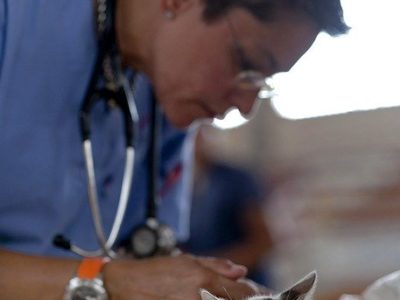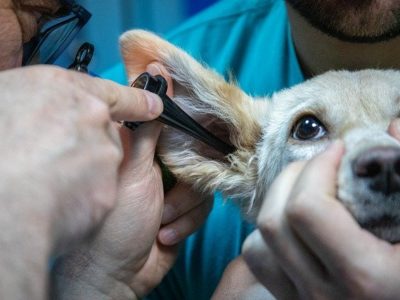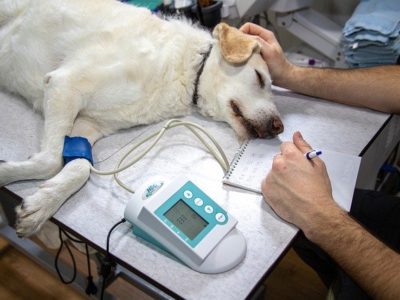What Is a Veterinary Ophthalmologist?
A veterinarian is a formally educated and licensed physician who provides medical services to animals. They seek to diagnose, treat and prevent illnesses and injuries in all types of animals. There are many different specialized veterinary professions, however, one of which is ophthalmology. Veterinary ophthalmologists provide medical services to animals — like all veterinarians — […] Read More
The Benefits of Working as a Veterinary Assistant
Veterinary assistants play an important role in the veterinary medicine industry by assisting veterinarians in the diagnosis and treatment of animals. They aren’t licensed veterinarians. Rather, veterinary assistants are paravetinary professionals who work under the guidance and supervision of a licensed veterinarian. Also known simply as vet assistants, they perform a variety of tasks related […] Read More
Why You Should Study Math When Seeking to Become a Veterinarian
You’ll need to study math if you’re planning to become a veterinarian. It may sound like an irrelevant curriculum, but math is regularly used by veterinarians. From companion animal veterinarians to specialized veterinarians, they all use math. Being that math isn’t a core course of Doctorate Veterinary Medicine (DVM) programs, though, you might be reluctant […] Read More
Equine Veterinarians: An Introduction to This Specialized Profession
When researching the different career paths available in veterinary medicine, you may come across equine veterinarians. While not as common as companion veterinarians, equine veterinarians play an important role in treating and caring for animals. With a Doctorate in Veterinary Medicine (DVM), they typically have at least four years of formal education. Considering that all […] Read More
7 Common Myths About Veterinary Careers Debunked
Are you considering a career in veterinary medicine? Also known as veterinary science, it’s a wide-reaching industry that involves diagnosing, treating and preventing medical conditions in animals. When researching information about veterinary careers, though, you shouldn’t believe everything you hear. Below are seven common myths about veterinary careers. #1) Veterinarians Aren’t Actually Doctors This statement […] Read More
Veterinary Technician vs Veterinary Technologist: What’s the Difference?
The field of veterinary medicine isn’t linear. Rather, it’s a broad and ever-growing industry that covers a myriad of professions. There are veterinary technicians and technologists, for instance, who work under the supervision of a licensed veterinarian. They help veterinarians diagnose, treat and prevent disease and injuries in animal patients. While they share many of […] Read More
7 Things to Consider When Starting a Pet Sitting Business
Are you thinking about starting a pet sitting business? According to the American Veterinary Medical Association (AVMA), over 63% of U.S. households own either a dog or a cat. Most owners, of course, can’t watch their pets all 365 days of the year. Maybe an owner is traveling for a family vacation, or perhaps an […] Read More
The Pros and Cons of a Veterinary Internship
After earning a Doctorate in Veterinary Medicine (DVM), you might be eager to secure a job at a local veterinary clinic. An alternative route, however, is to do an internship. Not to be confused with a residency, a veterinary internship is an optional service education program that immediately follows a DVM. It typically lasts one […] Read More
The Rise of Mobile Veterinarians and Why They’ve Become So Popular
When pursuing a career as a veterinarian, you might assume that your only option is to work at a traditional clinic. There are tens of thousands of veterinary clinics in the United States where licensed veterinarians offer medical services for animals. After earning a Doctorate in Veterinary Medicine (DVM) — a four-year degree program — […] Read More
How Veterinarians Give Back to Their Local Communities
Veterinarians do more than just diagnose and treat medical conditions in animals; they give back to local communities. To become a veterinarian, an individual must swear to use his or her knowledge “for the benefit of society” during the Veterinarian’s Oath. As a result, they frequently perform activities outside their clinic’s normal operations to nurture […] Read More










